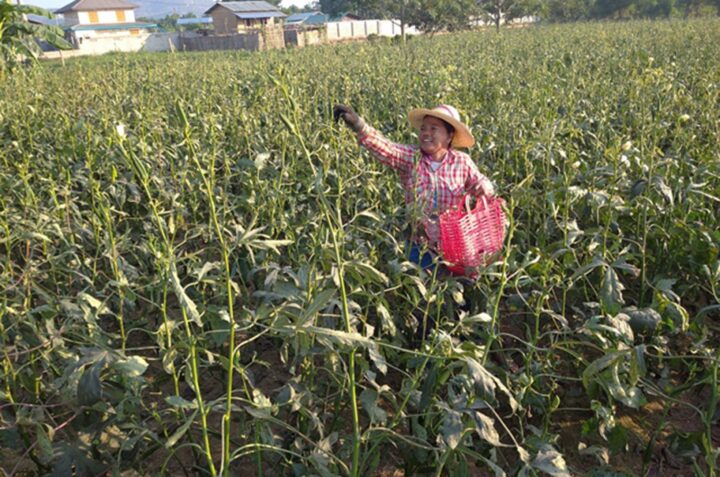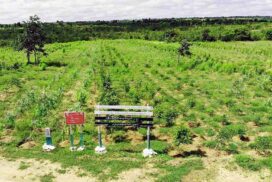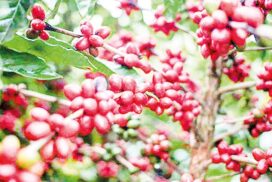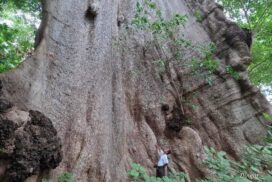The farmers in Tadalae ward, Kyaukse town, Mandalay region are growing okra on a manageable scale to earn family extra income daily.
“I have four acres of farmland. We could not grow the paddy because those farmlands are sandy soil and are located next to the Zaw Gyi river. I have six family members, and I need to use the farmlands effectively to have family income. Now, I have cultivated seasonal crops such as okra, dregea volubilis, eggplant, rosselle, radish and safflower. But, I have cultivated okra for one acre. We don’t have to spend the labour charges because family members help grow those seasonal corps. However, the cultivation of the seasonal crops cost over K100,000. Okra takes over 60 days in total from cultivating to harvest, both in the dry season and in winter. We harvest every two days at first, and then, as more plants mature, we harvest every day. About 12 visses of okra have yielded on the first harvest. As there is abundant yield, we have got about 60 visses. We are selling our okra in both retail and wholesale. The wholesale price of okra is K600 per viss. The okra crop provides extra money to contribute to their family’s needs,” said U Aung Thin, an okra grower from Tadalae ward.
Okra is a water-loving plant that needs watering to keep the soil moist. The okra seeds are planted two feet apart. The nursery plant needs to be weeded and given fertilizer to grow the plants well. The plant needs to be sprayed with the pesticide if it is necessary.
Okra or commonly known as lady’s finger, is a widely consumed vegetable. It can be fried, pickled or grilled. This green veggie is filled with phenol and flavonoid. Consuming okra can help people fight against cancer and reduce stress and cure kidney and liver diseases and diabetes. People with a high blood glucose level should definitely include okra in their daily diets. — Thet Maung (Kyaukse)/GNLM
Farmers from Kyaukse grow okra for extra family income
- April 03, 2021
- 934














